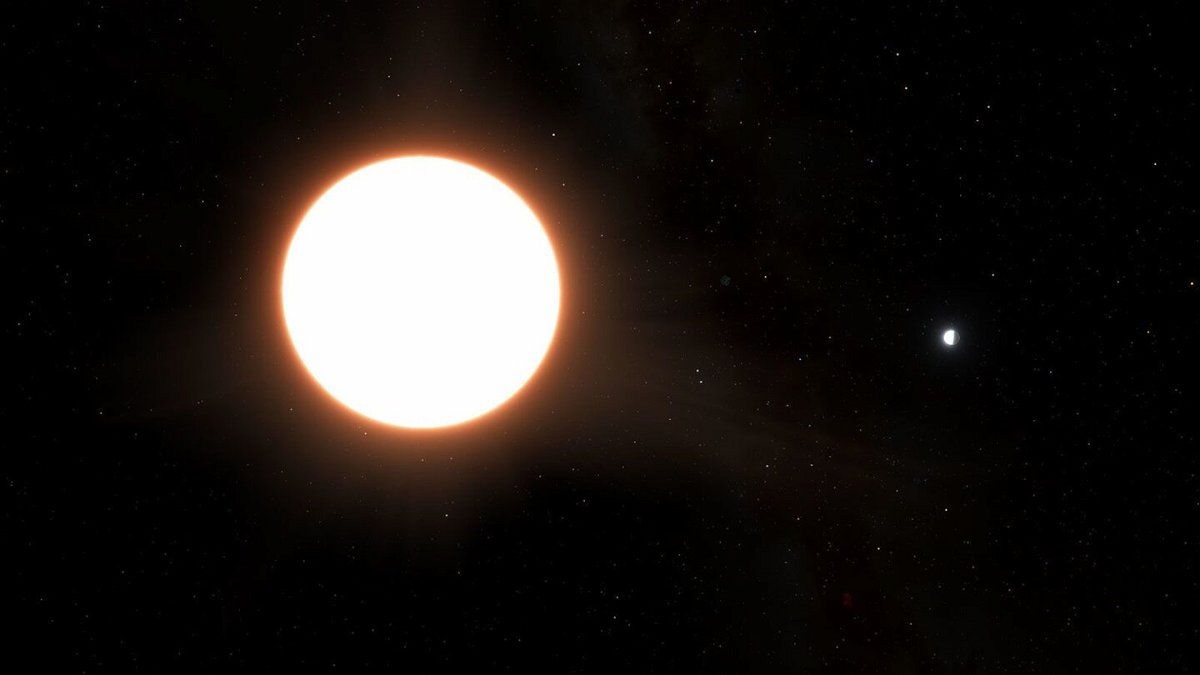Shiniest exoplanet ever found has reflective metal clouds

An artist's illustration shows an exoplanet
By Ashley Strickland, CNN
(CNN) — An ultrahot exoplanet that zips around its host star every 19 hours is the shiniest exoplanet ever discovered.
The scorching world, dubbed planet LTT9779b, has reflective metallic clouds made of silicates and metals like titanium.
The exoplanet is the largest “mirror” in the universe that astronomers have spotted to date. The planet is located 262 light-years from Earth.
Initially spotted by NASA’s planet-hunting TESS mission in 2020 and ground-based observations from the European Southern Observatory in Chile, the exoplanet was selected for follow-up observations by the European Space Agency’s Cheops mission.
Cheops, or the Characterising Exoplanet Satellite, collected measurements that revealed LTT9779b reflects 80% of the light from its host star, outpacing the high shine of Venus in our own solar system. After the moon, Venus is the brightest object in our night sky, and its thick clouds reflect about 75% of the sun’s light. Meanwhile, Earth reflects only about 30% of sunlight.
A study describing the findings was published Monday in the journal Astronomy & Astrophysics.
“Imagine a burning world, close to its star, with heavy clouds of metals floating aloft, raining down titanium droplets,” said study coauthor James Jenkins, an astronomer at Diego Portales University in Santiago, Chile, in a statement.
A planetary puzzle
The quantity of light reflected by objects is known as albedo, and most planets have a low albedo due to dark and rough surfaces or atmospheres that absorb light. Icy worlds, such as Saturn’s moon Enceladus and Jupiter’s moon Europa, and the reflective clouds of Venus are known exceptions.
But the shine of LTT9779b is a surprise. The side of the exoplanet that faces its host star likely reaches 3,632 degrees Fahrenheit (2,000 degrees Celsius). Temperatures above 212 degrees Fahrenheit (100 degrees Celsius) are too hot for water clouds to form. And LTT9779b is so piping hot that it shouldn’t have any clouds, even those made of metal or glass.
“It was really a puzzle, until we realised we should think about this cloud formation in the same way as condensation forming in a bathroom after a hot shower,” said study coauthor Vivien Parmentier, researcher at the Observatory of Côte d’Azur in Nice, France, in a statement.
“To steam up a bathroom you can either cool the air until water vapour condenses, or you can keep the hot water running until clouds form because the air is so saturated with vapour that it simply can’t hold any more. Similarly, LTT9779b can form metallic clouds despite being so hot because the atmosphere is oversaturated with silicate and metal vapours,” Parmentier explained.
There are other confounding factors about LTT9779b, including its size. With a size similar to Neptune and scorching temperatures, the planet is what astronomers call an “ultra-hot Neptune” — but it’s the first time a planet like this has been found so close to its star.
“It’s a planet that shouldn’t exist,” Vivien said. “We expect planets like this to have their atmosphere blown away by their star, leaving behind bare rock.”
Instead, the researchers think that the planet’s metal clouds are helping it survive in such an unlikely location.
“The clouds reflect light and stop the planet from getting too hot and evaporating,” said first study author Sergio Hoyer, a postdoctoral researcher at the Marseille Astrophysics Laboratory in France who works on the Cheops mission, in a statement. “Meanwhile, being highly metallic makes the planet and its atmosphere heavy and harder to blow away.”
The-CNN-Wire
™ & © 2023 Cable News Network, Inc., a Warner Bros. Discovery Company. All rights reserved.
